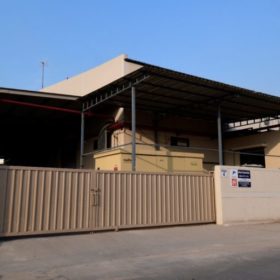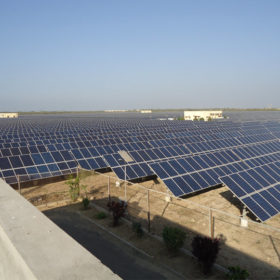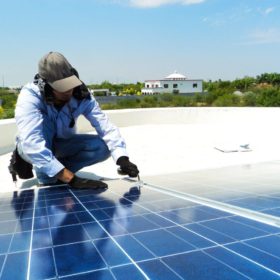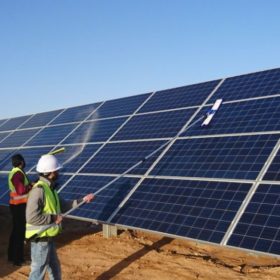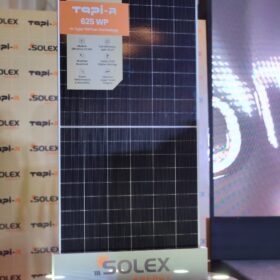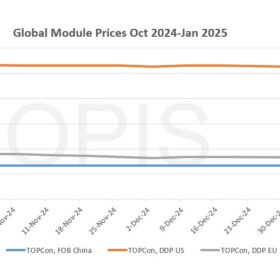Mitsui Chemicals’ solar lab becomes NABL accredited to test high-efficiency modules
The solar lab—based in Ahmedabad, Gujarat—uses Xenon-based single-long-pulse flasher and steady-state simulator from Netherlands-based Eternalsun Spire to test all current and future PV modules.
Gujarat extends solar power policy till December 31
The state’s Solar Power Policy 2015 was due to expire since April 1, 2020. With a 9-month extension, solar power plants installed and commissioned till December end become eligible for the benefits and incentives declared under this policy.
SJVN invites enlisted parties to bid for 100 MW solar in Gujarat
The solar plant—to be set up under a ‘build-own-operate’ basis—is part of the Dholera Solar Park capacity tendered by Gujarat Urja Vikas Nigam Ltd under ninth phase. July 16 is the last date to lodge the interest.
Tata Power to develop 120 MW solar project in Gujarat
The integrated power producer’s renewable capacity will now swell to 3,457 MW. Of this, 2,637 MW (932 MW wind and 1705 MW solar) is operational and 820 MW solar (including the latest 120 MW won from Gujarat Urja Vikas Nigam Limited) under implementation.
SunSource Energy bags another IndianOil project
The new rooftop solar project will be the EPC provider’s third project for Indian Oil Corporation. It will cover ten buildings across the state-owned fossil fuel giant’s flagship Gujarat Refinery and its residential township.
Water scarcity and the growing need for smarter solutions in solar projects
The inefficiency and irregularity of cleaning the solar panels manually, and the associated use of water defeat the purpose of shifting to renewable energies.
Gujarat announces sops to attract new manufacturing units
Plug-and-production facilities and labour law exemptions for 1200 days are among the decisions announced by the chief minister of the Indian state which contributes 7.9% to India’s gross domestic product and 20% to the overall exports.
Problems observed in solar module mounting structures in India
Findings from solar installation sites in Gujarat and Rajasthan and some suggestions to handle the issues.
WoodMac predicts India’s renewables installation to fall by a fifth due to lockdown
Over 21.6% or 3 GW of solar and wind installations will get delayed due to supply and labour disruptions caused by the ongoing Covid-19 lockdown, according to the analysts which in a January report forecast the country to add over 15 GW of renewable capacity this year.
Sterlite Power gets GE, Tata onboard Green Energy Corridor project in Gujarat
The project involves laying over 300 km of 765 kV double-circuit transmission lines connecting 765/400 kV Lakadia substation to Vadodara substation in Gujarat.
